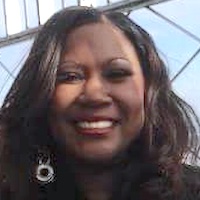
29 May 2019 Court Can’t Hide From Race, Gender-Specific Abortion Problem Forever
While the U.S. Supreme Court chose not to take up a case involving a common sense “abortion control” that prohibited the termination of a baby based on its race, gender or perceived disability, Justice Clarence Thomas made a compelling argument that the Court can’t run from the issue forever.
Members of the National Center’s Project 21 black leadership network are praising Justice Thomas for his legal opinion that “abortion is an act rife with the potential for eugenic manipulation” and “we cannot avoid [the issue] forever.”
“Having created the constitutional right to an abortion,” Justice Thomas noted, “this court is dutybound to address its scope.”
One of the 57 recommendations in Project 21’s “Blueprint for a Better Deal for Black America” is a ban on race-specific abortions.
 Project 21 member Demetrius Minor lauds Justice Thomas for his defense of the unborn:
Project 21 member Demetrius Minor lauds Justice Thomas for his defense of the unborn:
Justice Thomas is correct in his assertion that abortion cannot go ignored and unaddressed.
As a nation, we have a moral obligation to uphold a culture of life. To ignore the atrocities that the unborn child faces will forever paint a tainted picture of our country’s principles and values.
With Justice Thomas invoking the issue of eugenics in the abortion conversation, it forces us to evaluate this not just from a moral code of conduct, but the cultural implications that will impact future generations for years to come.
In the case of Box v. Planned Parenthood of Indiana and Kentucky, the Court was asked to rule on provisions contained in a 2016 Indiana law designed to rein in extreme abortion practices. The justices ruled without formal oral argument. It overturned the lower court’s decision and allowed the reinstatement of a provision of the law that required aborted remains to be buried or cremated rather than simply thrown away or possibly even sold.
But the Court choose not to take up the provision that required doctors to inform those seeking abortions that, by the law, “Indiana does not allow a fetus to be aborted solely because of the fetus’s race, color, national origin, ancestry, sex or diagnosis or potential diagnosis of the fetus having Down syndrome or any other disability.” Situations that involved “lethal fetal abnormalities” were exempted from the Indiana law.
While Justice Thomas voted with the majority to not take up the case, he did issue a 20-page concurring opinion critical of such practices, in which he wrote:
Enshrining a constitutional right to an abortion based solely on the race, sex or disability of an unborn child, as Planned Parenthood advocates, would constitutionalize the views of the 20th-century eugenics movement. In other contexts, the Court has been zealous in vindicating the rights of people even potentially subjected to race, sex and disability discrimination.
He added:
So long as the Supreme Court forces a policy of unfettered elective abortion on the entire country, it ought to at least allow for states to protect babies from unjust discrimination.
Justice Thomas cited the fact that Planned Parenthood, the defendant in the case and a leading marketer of abortion in America, has had a series of leaders who professed eugenics – the idea that humanity can be improved through selective breeding. This includes founder Margaret Sanger, who once called black Americans living in New York City in the early 20thcentury “the degenerate and the defective.”

Reacting to the way the American abortion industry’s founders thought of Americans, and to Justice Thomas calling them out for it in his concurrence, Project 21 Co-Chairman Stacy Washington says:
Black women in America represent seven percent of the population but have 37 percent of the abortions. Justice Thomas connects the abortion giant Planned Parenthood and the eugenics movement by way of its founder, Margaret Sanger.
In essence, Justice Thomas makes it clear that abortion may already be the tool of choice for racists in America who seek to limit the black population.
Instead of seeing his opinion as a dodge or missed opportunity, the pro-life movement should read the roadmap laid out before us. Tell the truth about abortion and its primary purveyor – Planned Parenthood. Both exist to exterminate “human weeds”; thus abortion is completely unconstitutional.
Additionally, Justice Thomas reminded the Court that it “threw its prestige behind the eugenics movement in its 1927 decision upholding the constitutionality of Virginia’s forced-sterilization law.” Considering that factor, he added: “Enshrining a constitutional right to an abortion based solely on the race, sex, or disability of an unborn child, as Planned Parenthood advocates, would constitutionalize the views of the 20th-century eugenics movement.”
 Project 21 released its “Blueprint for a Better Deal for Black America” in 2018 to “identif[y] key areas for reform… to remove barriers blocking blacks from reaching their full potential and ensuring the American dream is attainable for all.” In its section for “Strengthening Faith-Based Communities,” the Blueprint addresses race-based abortion in a manner similar to the Indiana law about which Justice Thomas wrote his concurrence. The Blueprint specifically recommends “[b]anning abortions performed exclusively on the basis of ethnicity of a fetus.”
Project 21 released its “Blueprint for a Better Deal for Black America” in 2018 to “identif[y] key areas for reform… to remove barriers blocking blacks from reaching their full potential and ensuring the American dream is attainable for all.” In its section for “Strengthening Faith-Based Communities,” the Blueprint addresses race-based abortion in a manner similar to the Indiana law about which Justice Thomas wrote his concurrence. The Blueprint specifically recommends “[b]anning abortions performed exclusively on the basis of ethnicity of a fetus.”
Project 21 members have met with staff members at the White House and the U.S. Department of Health and Human Services (HHS) to promote the Blueprint and its specific recommendation about prohibiting race-specific abortions.
 Project 21 member Donna Jackson, who was one of those who met with the HHS staff, says:
Project 21 member Donna Jackson, who was one of those who met with the HHS staff, says:
It is only fitting that Supreme Court Justice Clarence Thomas has risen to the occasion to discuss abortion, since he and other black Americans have been the primary targets of abortion rights advocates.
I believe he rightly pointed out the racist history of abortion and Planned Parenthood which still exists today. The organization no longer talks explicitly about reducing the numbers of “undesirables,” but the policy remains the same.
We have too readily become the disposable people of the liberal left with 78 percent of abortion clinics being located minority communities. I thank Justice Thomas for raising this important issue.



